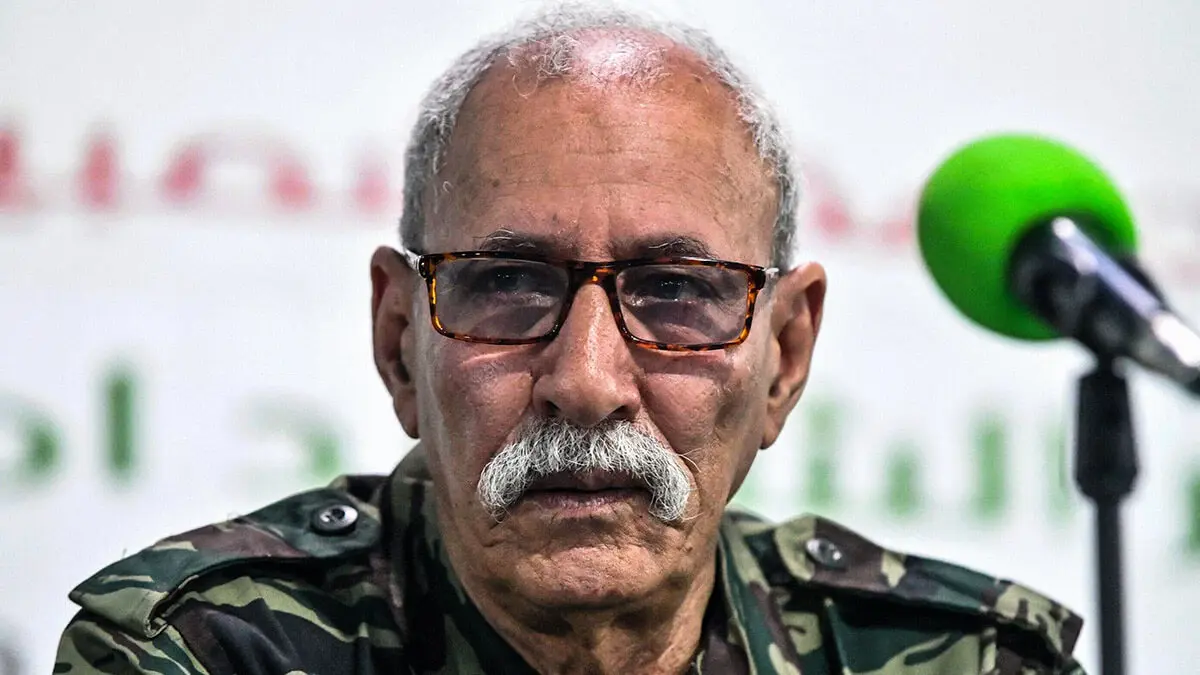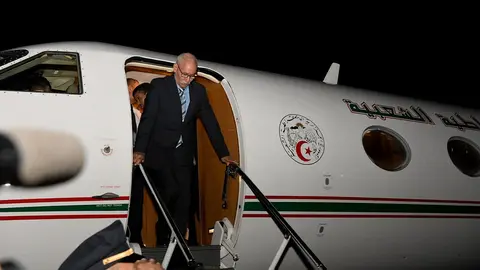Fórum Canario Saharaui rejects the decision of the Supreme Court on the lawsuit against Brahim Ghali

In an official statement, the Fórum Canario Saharaui has rejected the decision of the Supreme Court on the lawsuit against Brahim Ghali, but recalled that it still has an open case regarding his illegal entry into Spain.
In this way, the Fórum Canario Saharaui has regretted the decision of the Supreme Court endorsing the dismissal of the lawsuit against the leader of the Polisario Front that was pending in the National Court, recalling his pending cases with the justice system regarding his illegal entry into Spain and his hospital stay in 2021.
The official statement of the Fórum Canario Saharaui is reproduced below:
PRESS RELEASE OF THE FÓRUM CANARIO SAHARAUI
The Fórum Canario Saharaui rejects the decision of the Supreme Court on the complaint against Ghali, but recalls that it still has an open case on his illegal entry into Spain.
In relation to the recent endorsement of the Supreme Court to the dismissal of the complaint against Brahim Ghali that was filed in the Audiencia Nacional, and in correlation with his pending cases in the Spanish courts about his illegal entry into Spain and hospital stay in 2021, this Fórum Canario Saharaui declares:
That we regret and reject this ruling of the Supreme Court, under the umbrella of a misinterpreted ‘prescription’ of the facts. This ruling may be publicly perceived as an exoneration of atrocious crimes without the effort of a thorough investigation. Both this Forum, and especially the victims, consider it a failure in the administration of justice and a lack of accountability in the face of serious allegations of human rights violations more than documented by the content of the complaints filed by the Sahrawi Association for the Defence of Human Rights (ASADEDH) and several victims.
Despite the ruling, we believe that the continuing allegations against Ghali and other Polisario Front leaders for genocide, torture and other crimes remain an abominable blight on an organisation whose image languishes in the wake of this record of abuse and violence. The idea that leaders accused of such serious crimes can escape justice undermines confidence in Spanish judicial institutions and in our country's commitment to human rights.
In this sense, we would like to highlight that these lawsuits against Brahim Ghali, together with the case opened in the 7th Court of Instruction of Zaragoza, regarding his illegal access to Spain in 2021 and subsequent hospitalisation in Logroño, are intrinsically connected in a never-ending saga of legal, political and even media controversies surrounding his figure.
As we all know, Brahim Ghali entered Spain under a false identity to be treated at the San Pedro Hospital in Logroño by COVID-19. This clandestine operation provoked an unprecedented diplomatic crisis with Morocco. It should also be recalled that, during his admission to the hospital, Ghali testified telematically before the Audiencia Nacional about the complaints.
We consider it vitally important to underline the importance of the legal case that is still open in Zaragoza, centred on the circumstances and responsibilities related to Ghali's illegal entry into Spain, where we must demand that the case be pursued to the end and that the relevant responsibilities be established. It examines the role of the Spanish authorities and other actors who facilitated his entry into our country without proper controls and under a false identity. The investigation has sought to determine whether there was an organised scheme at different levels to allow Ghali's illegal entry and subsequent medical treatment under irregular conditions.
Currently, the judge in charge of the case is still awaiting without success the response to the rogatory commission sent to Algeria, decreeing the search and capture of Ghali's son as one of the main suspects in the plot. We also believe that this case brings into focus the issue of accountability and transparency in government management, raising serious questions about its management of the crisis and the opacity of the case.
In short, the Supreme Court's questionable ruling, the open case regarding his entry into Spain and medical treatment, as well as his documented and murky past in terms of terrorism and human rights, which even includes accusations of rape (Jadiyetu case), are interwoven and continue to cast a shadow of suspicion over Ghali and his leadership, undermining the already limited credibility of the Polisario. The Supreme Court's questionable judicial prescription will never erase the execrable deeds committed in the past.
Finally, we would like to point out that endorsing the Supreme Court's dismissal of the case against Ghali in no way erases his recent and tumultuous judicial and media career, which began in 2021 with his controversial stay in Spain. In fact, it reinforces the negative image of Ghali and the Polisario as actors involved in the permanent commission of crimes, which are added to the long blacklist of those already known.









